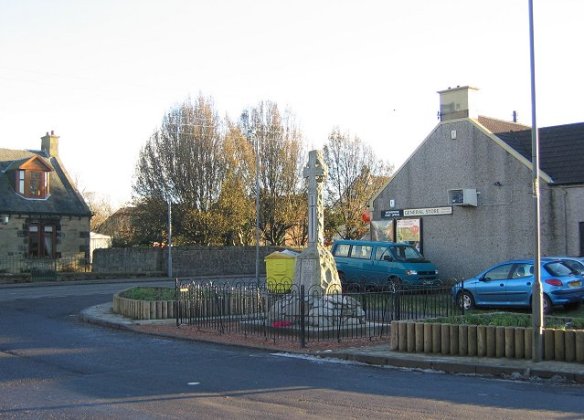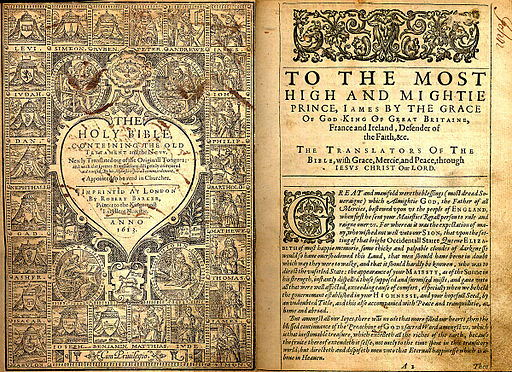Janet Paisley is a prominent Scottish writer of fiction, non-fiction, poetry, radio and television scripts, plays and the occasional author of children’s stories (“Janet Paisley b. 1948”). Her work has won numerous awards from the 1990’s onward (Smith). Paisley is widely published and anthologised, and her work has been translated into upwards of eleven languages from Dutch to Lithuanian (“Bibliography”). Paisley’s childhood, motherhood, and literary inspiration will be discussed from 1948-1981;information about her life and work from 1982 to the present day can be found in “Janet Paisley: Part Two (1982-present)”.
Privacy and Control
Despite the vast amounts of information available online, there is little specific factual information on Paisley’s background or personal life available. In general information is confined to her literary career, where she grew up, and, often, the number of children she has. Even facts as basic as the date of her birth remain private. Paisley is able to maintain tight control over her public personal, and the scarcity of information reveals the value she places on privacy. On her website the content is primarily limited to her work, and references to her life are succinct and rare. Despite the control she exacts over the information available about her much of her poetry is deeply personal. Keeping the details of her life private allows Paisley write about more intimate subject matter without implicating other people who may be subjects of her poetry. The scarcity of personal details available also makes her poems less likely to be interpreted only as a reflection of Paisley’s own life. For example, the poem “Mayday” which expresses a personal experience of childbirth and death becomes more open to interpretation as a generic experience of birth and loss.
However, Paisley does give interviews and while she does not anchor her responses in specifics she does provide some information about her life, and in some cases it can be applied to her poetry. With this intent, much of the information in the following section is extracted from interviews, available online, for Penguin Books UK and one available through the Charlotte Mecklenburg Library.

An image from 2005 of the war memorial in Avonbridge where Paisley grew up. Courtesy of wikimedia commons.
Personal Life
Paisley was born in 1948 in Ilford, Essex, but she grew up in Avonbridge, Central Scotland. A 2008 interview, conducted through the Charlotte Mecklenburg Library, reveals Paisley’s mother left her father to raise her daughters in their grandfather’s home (Paisley “Meet the Author: Janet Paisley”). Paisley says that in her childhood
there were no single parents in our village, despite it being post-war, and [the sisters] were encouraged to stay in education and choose careers not marriage as a personal goal.” (“Meet the Author”)
Paisley is quoted as greatly admiring her mother’s “spirit and strength,” and the topic of motherhood is present in her poetry (“Meet the Author”). As an adult Paisley married, undertook a career in teaching, bore seven sons the last of which died as an infant, and she and her husband divorced (“Biography”).
As a newly single-parent Paisley began simultaneously working towards establishing her writing career and raising her six sons. Her role as a mother is one she takes great pride in. When asked what she considers her greatest accomplishment thus far Paisley’s response reveals her pride in being a mother:
Raising my own six sons single-handed from the ages of 1-13, as a poet, literary short-story writer and playwright, despite no financial assistance from their dangerously violent father. I am so proud of all of them, such fine men. (Paisley “Meet the Author”)
The quotation suggests the nature of her relationship with her ex-husband, but it also clearly illustrates the prominent role family plays in Paisley’s life. Just as details about her own life are kept private, there is little information available about her sons. In one interview she does say that although they are all creative men half have chosen to pursue the sciences as they know “a writer’s life [is] hard and impoverished” (“Meet the Author”). It is known that Scottish actor and singer David Paisley is one of her children (“David Paisley”). During her early efforts to become a professional writer Paisley was financially assisted by grants from the literature and drama departments of the Scottish Arts Council (“Biography”).
Literary Inspiration
Paisley’s literary influences are numerous, and she traces her inspiration and desire to be a writer back to early childhood. In the 2008 interview she states that as soon as she learned to read she knew she wanted to write; her family’s impact on her goal is highlighted is this description:
[they were] miners, farmers, shop and car manufacture workers, and [their] house was full of books. Everybody read constantly. [She] wanted to create that kind of magic where you can enter a different world, be someone else for a while, and be moved by new or familiar experiences. (Paisley “Meet the Author)
Paisley’s intention to create fiction which makes the reader enter a different world manifests through her novels which are generally derived from historical events, and in her poetry she often captures bodily everyday experiences which move the reader, particularly women, through the familiar.
Paisley’s literary influences are far-ranging, and begin with the King James Bible. Although, in an interview with Penguin Books UK, Paisley asserts that she does not have any religious beliefs the King James Bible is inspiring because its “language and expression is superb, [and] the content riveting” (Paisley “Janet Paisley”). Another classical early influence is the work of William Shakespeare because of “the power of his language” (Paisley “Meet the Author”). She is also influenced by the work of Victorian writer Margaret Oliphant, and Paisley regards Ernest Hemingway’s The Old Man and the Sea as a continual source of inspiration (Paisley “Janet Paisley”). She cites further foundational influences as D.H. Lawrence, Guy de Maupassant, Chekov, Dylan Thomas, Pasternak, Flannery O’Conner, John Steinbeck, and Somerset Maugham (Paisley “Meet the Author”). Paisley also admires fellow Scottish women poets Violet Jacob, particularly her love poems, and Liz Lochead (Smith). Additionally, Paisley is influenced by the writer George Bruce who has acted as a mentor-like figure to her (Smith). Despite numerous literary influences Paisley’s work is distinctly marked by her life. It has been described, in reference to her 1996 poetry collection Alien Crop, by the Scottish poet Kathleen Jamie as “very much ‘in the world.’ With a wry, full awareness …. She writes with a wisdom which has surely been won from experience” (qtd. in Smith).
“Mayday” Son
Several years after the loss of her seventh son Paisley wrote the poem “Mayday” (1996) which recounts his birth and death as a newborn. The role his loss plays in her life remains strong, and this is evident from her statement that her biggest fear is “ever having to face the death of another son” (Paisley “Janet Paisley”). “Mayday” is part of a collection of English poems called Reading the Bones, and was published by Canongate Books in 1999. The collection is divided into five sections, and “Mayday” is the third poem in the final section; this final section is titled after the collection, and is subtitled “no-one to touch / fingers blind.” The poems surrounding “Mayday” deal with children, their death, and absent fathers.
The title “Mayday” references the international radio procedure, often used in relation to ships, which uses the term to signal a life-threatening emergency, but it also ironically references the May Day spring celebrations which signal a new season of growth (“Mayday, int. and n.2”). The tone of “Mayday” is personal, and paisley uses visceral imagery to evoke her experience of childbirth and loss. “Mayday” uses bodily language around labour to great effect, and this is a continuation of her poems in her earlier collection Alien Crop of which “most memorable are her poems about childbirth such as ‘The Caul’ and ‘Words for my Daughter’” (Smith). In “Mayday” Paisley expresses her knowledge that the labour was not normal through physical descriptions and his death is foreshadowed through the simile of the plug and drain:
I know precisely the last pull of pain
when you came out of me,
feet first, each pressured, released,
sucking like drawn plugs
and the wet, warm slither down
the drain of life. (Paisley “Mayday,” 2-7)
Similarly, the depth of her loss is expressed through physical terms:
All you left, breast full, blood heat, the bluish milk,
fell in the void of your leaving
and destitute, my arms raged. (13-15)
Her body communicates her anger at his loss. “Mayday” also makes use of nautical metaphors such as his sailing beyond her, the “salt in [his] name,” and feeling his loss as a “sore tide” rising in her (9, 22, 17-18). The nautical language is another technique she carried forward from the poems in Alien Crop where “male [is] energy symbolized by ships and the female [is] identified with the sea” (Smith). Furthermore, Paisley’s language reveals the importance of her role as a mother and expresses aspects of her life which would otherwise be kept private in an intimate but ambiguous style. Formally the poem fits conventional lyrical expectations that the speaker is the autobiographical voice of the poet. Similarly motherhood is typically framed as emblematic of women’s experiences. Through the physicality of the speaker’s experience of motherhood Paisley connects readers to the material reality of the condition of motherhood, and in this way her poem is both personal and universal.
Summary
While many details of Paisley’s life up to 1981, and beyond, remain private, the information that is available demonstrates the influence having a strong mother has on her own experience, and how motherhood is expressed through her work. The encouragement she received regarding the pursuit of education and a career also influenced her ability to build her career while raises her sons as a single parent. Perhaps more importantly Paisley was inspired to write from an early age because her family exposed her to the practice of reading daily and the transformative power literature contains.
Although Paisley does not discuss her attitude towards being classified as a Scottish woman poet in the interviews previously quoted, she does make one flippant comment which captures her spirit and the continued issue of gender in the canonization of writing. In response to a question about recognizing and celebrating women’s writing Paisley stated,
Women’s writing isn’t commemorated, though, if mine ever looks like heading for annual celebratory orgies by moonlight in woodland groves, tobacco and tea should be provided. (Paisley “Janet Paisley)
To learn about Janet Paisley’s life from 1982 to the present day please see “Janet Paisley: Part Two (1882-present).”
Works Cited
“Bibliography.” Janet Paisley. 31 August 2007. Web. 12 March 2013.
“David Paisley.” Wikipedia: The Free Encyclopedia. Wikimedia Foundation, Inc. 4 February 2013. Web. 13 March 2013.
“Janet Paisley (b. 1948).” Scottish Poetry Library. n.d. Web. 12 March 2013.
Paisley, Janet. Alien Crop. Edinburgh: Chapman Pub., 1996. WorldCat. Web. 1 April 2013.
“Mayday, int. and n.2”. OED Online. March 2013. Oxford University Press. Web. 4 April 2013.
—. “Janet Paisley.” Interview. Penguin Books. Penguin UK, n.d. Web. 13 March 2013.
—. “Mayday.” Modern Scottish Women Poets. Ed. Dorothy McMillan and Michel Byrne. Edinburgh: Canongate Books Ltd., 2003. 172-173. Print.
—. “Meet the Author: Janet Paisley.” Interview by Sally W. Charlotte Mecklenburg Library. Beatties Ford Road Branch Library, 2008. Web. 13 March 2013.
—. Reading the Bones. Edinburgh: Canongate Books Ltd., 1999. Print.
Smith, Dr. Jules. “Janet Paisley.” British Council Literature. 2004. Web. 13 March 2013.
Further Resources
BCECBIT, the 2006 Ukrainian translation of a selection of Janet Paisley’s poetry from Alien Crop (1996).
Books from Scotland 2007 interview with Janet Paisley.
Google Books Reading the Bones (1999) and Alien Crop (1996) poetry collections by Janet Paisley.
Janet Paisley’s website.

